Idea by
Zuhal Kol, Carlos Zarco Sanz, Sara Palomar Perez
openact
Call for ideas 2019
Swap on the River
Swap on the River
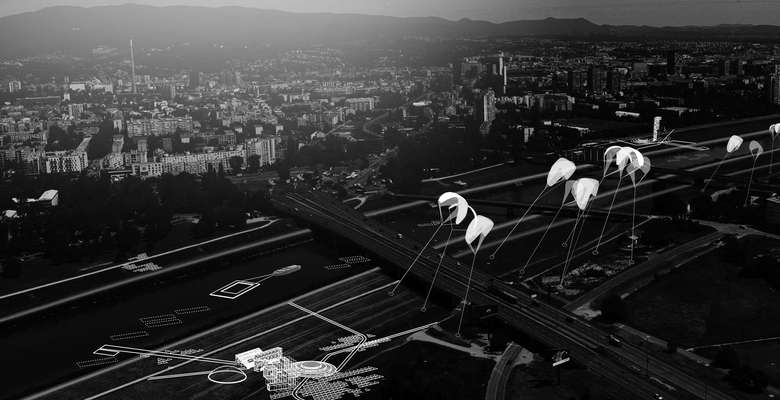
- New alliances
Expanding into the vast urban territories of Zagreb, Sava River runs approximately 15 km through the city. Historically avoided due to the floods, but now developed with dikes, the riverbanks carry the potential to be rethought as vital urban spaces for Zagreb. Aiming to reintroduce the riverside to its inhabitants, the project examines four underused sites and focus on the question of how intervention on four separate sites can have holistic effect to change movements and relationships of the entire river with the city. The project stands as an exploration of opportunities to experiment the effect of relatively small, soft and temporal interventions that are characterized by dynamism, immateriality, and indeterminacy. Therefore, the proposal introduces a framework of negotiation in which a constant conversation of the sites/their surroundings/programs is promoted through movement and exchange on/around the water.
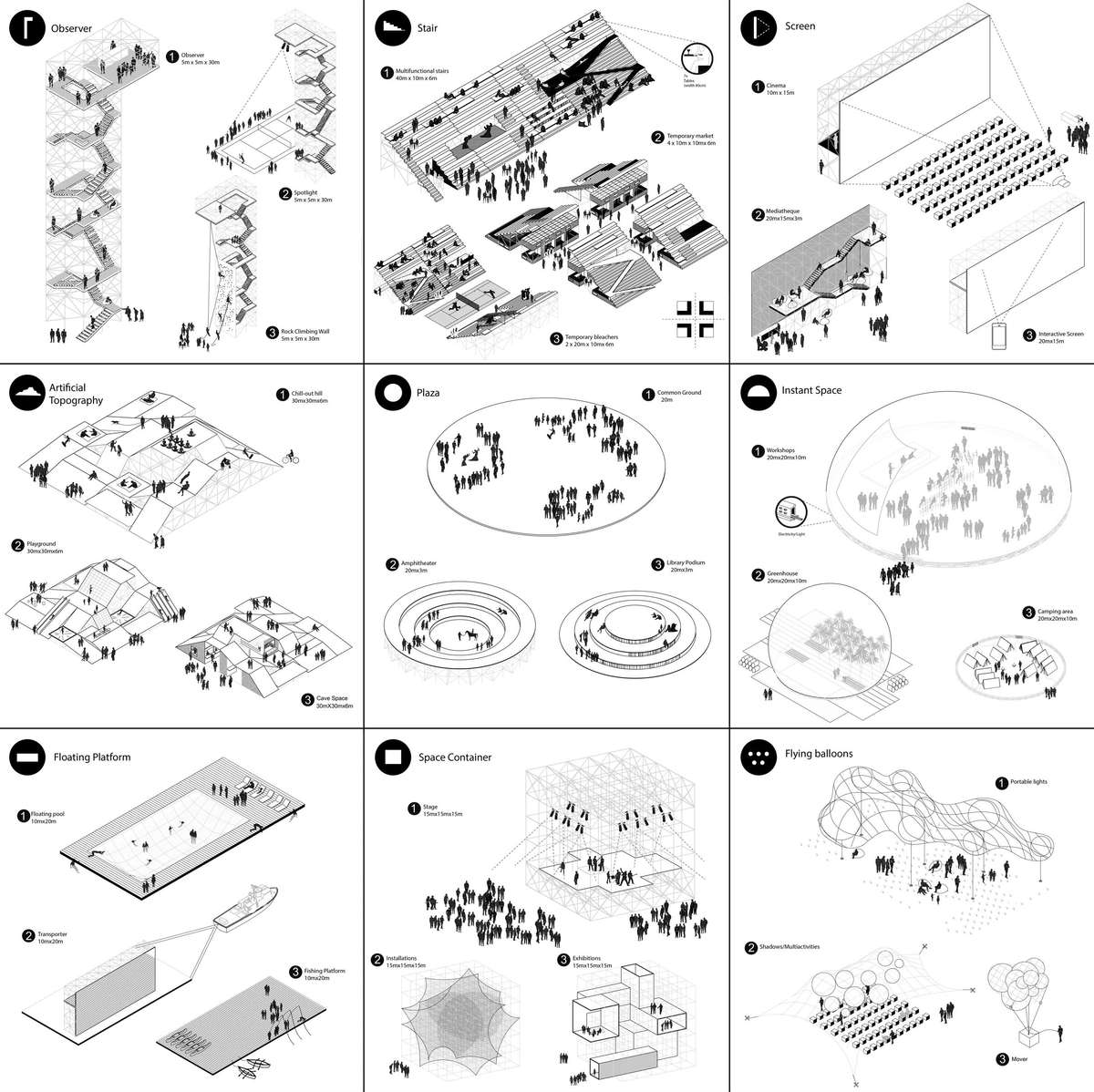
As the medium of the framework of negotiation, activator structures will be swapped/interchanged between the sites enhancing the east-west connection of the city through river. Consisting of nine structures with different roles and capabilities, the activators are pivotal for negotiation of programs, activities and goods in between the sites.
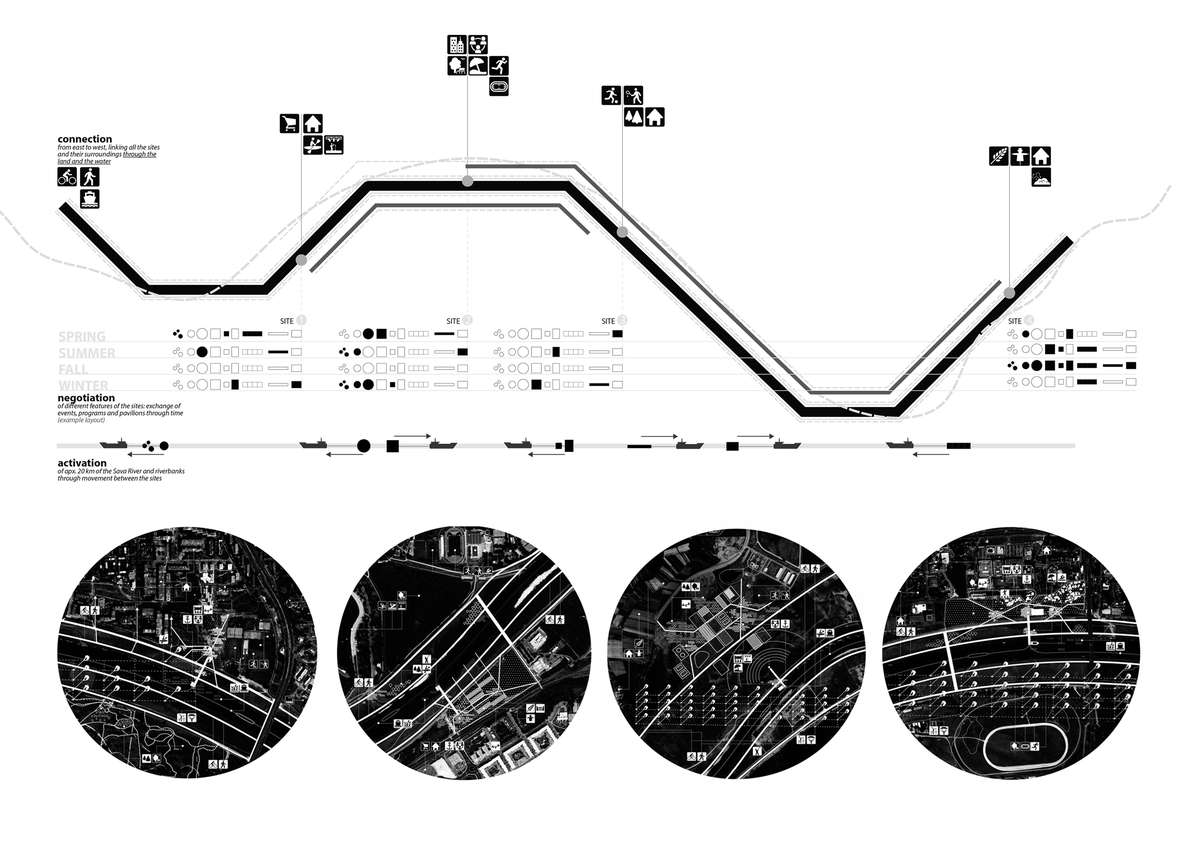
Within the adaptability theme, the work introduces a framework of negotiation in which a constant conversation of the riverbank sites/their surroundings/programs is promoted through exchange on/around the water. The 4 underused sites adjacent to the riverbank have been transformed with subtle landscape interventions such as paths and program surfaces, while as the medium of this exchange, activators are introduced with varying programs to be swapped and interchanged in between the 4 sites.
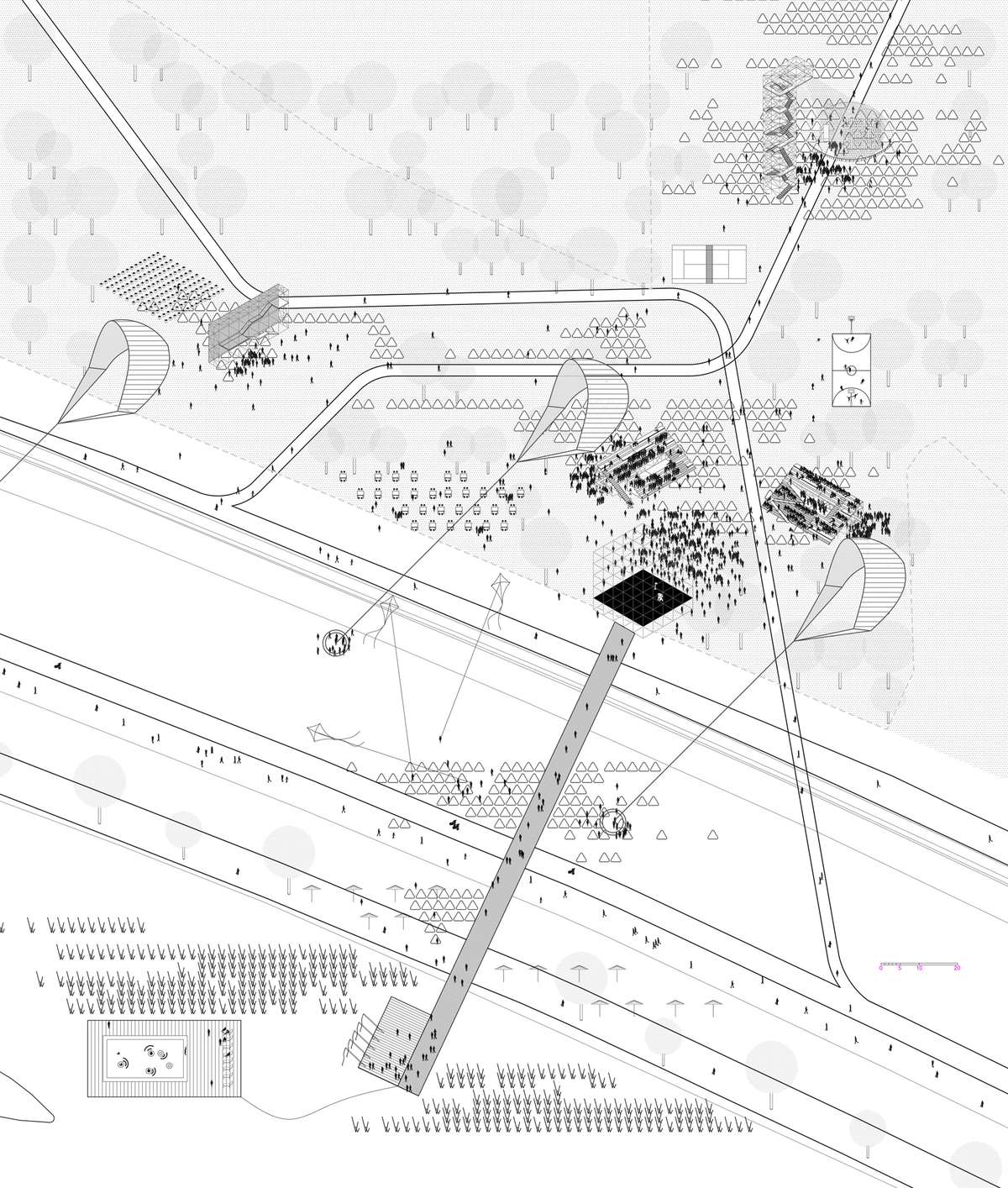
With these proposed interventions the project aimed to answer the question of how intervention on four separate sites could have holistic effect to change movements and relationships of the entire river with the city; examined how to transform 15 km long riverside into enduring public space with temporary programming; and attempted to envision how to build and let new realities emerge within the economic and ecologic constraints.
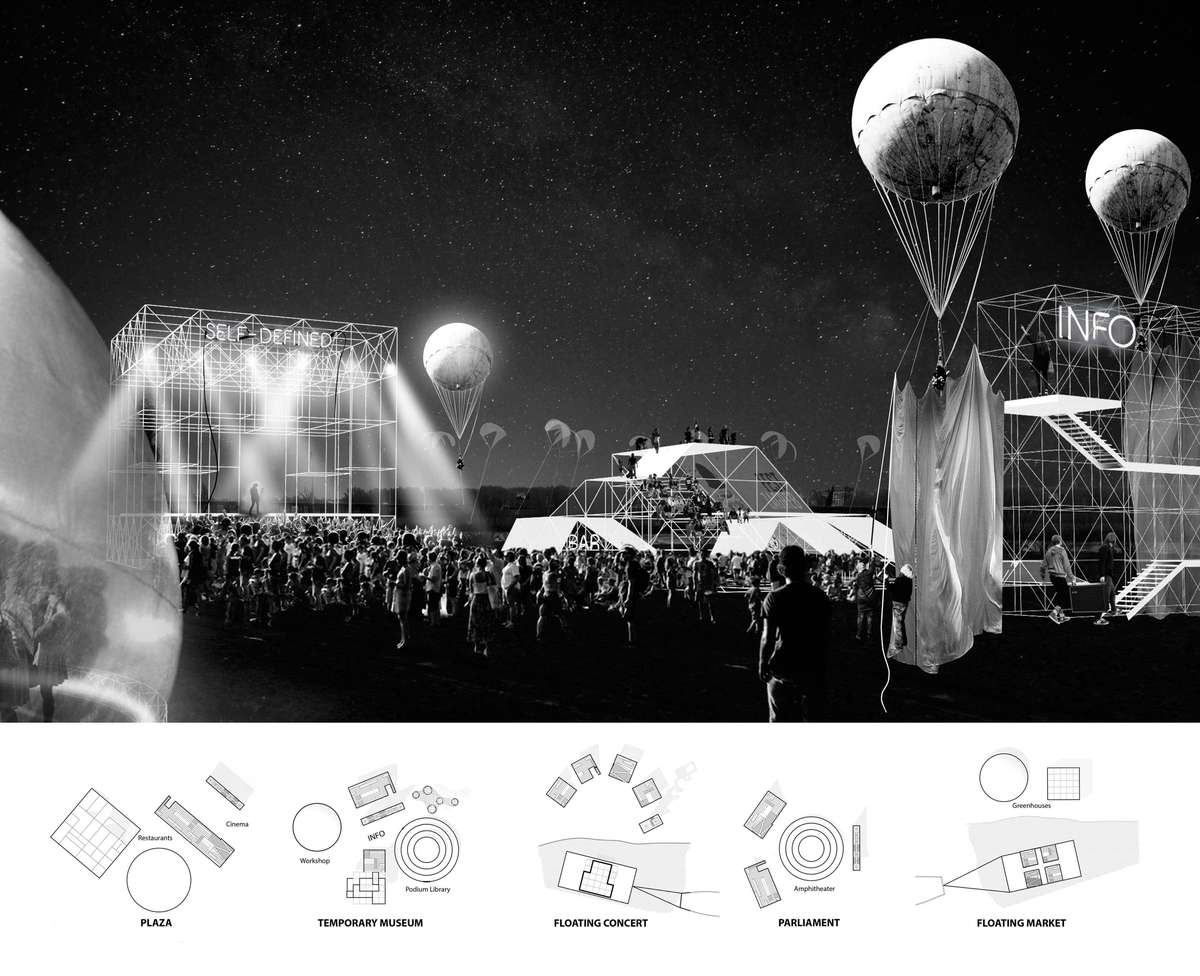
While every single structure is able to host multiple activities through slight changes, combination of varying number of activators generate endless possibilities of events and uses. By visiting each site and being carried through water, the activators foster conversation between the sites, convey programs from one to another, and adapt to the needs of the sites.
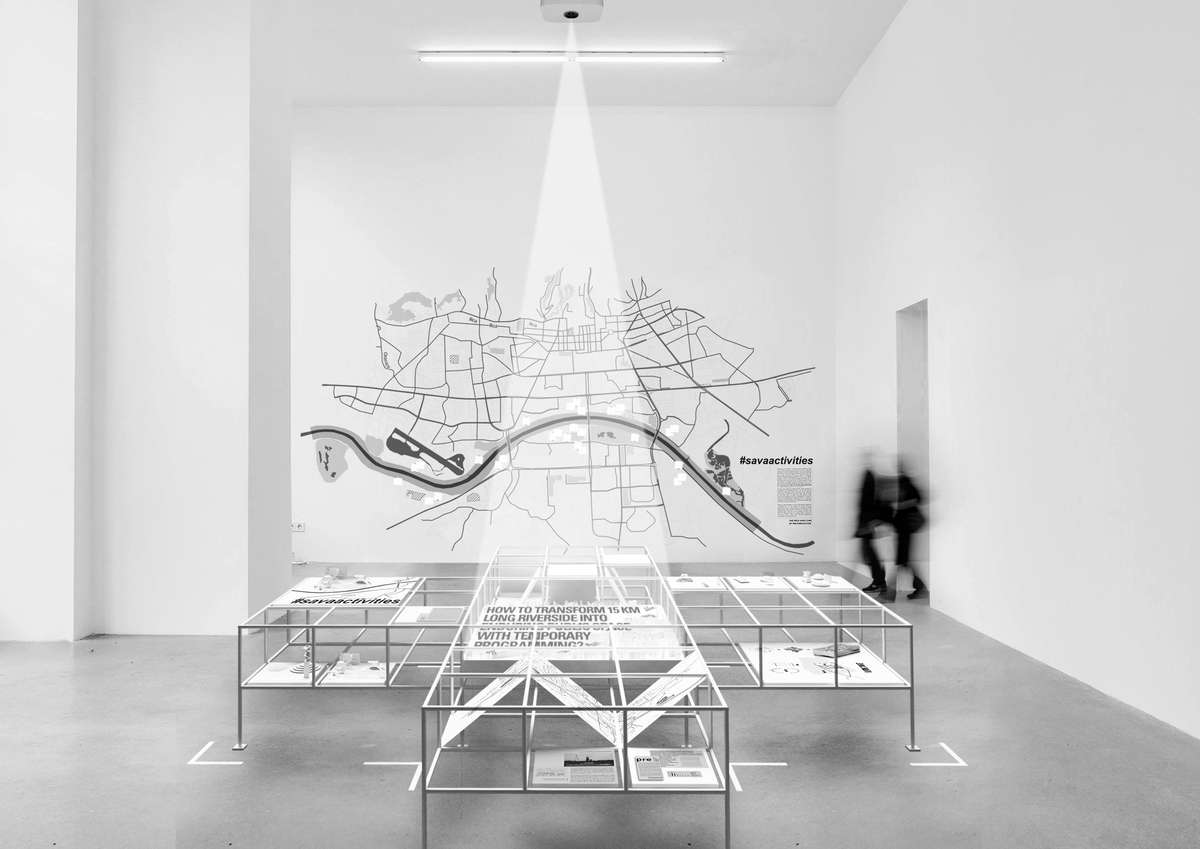
The on-going process revolves around the aimed inclusive public debate to help shape the project and the aim to render is through an interactive exhibition, which intends to deepen the research on this kind of nomadic urbanites since they are crucial for transforming an area with limited means of economics and provide a framework for investigating theories of spatial practices as a means of examining problems within contemporary urban societies.
Swap on the River
Swap on the River

- New alliances
Expanding into the vast urban territories of Zagreb, Sava River runs approximately 15 km through the city. Historically avoided due to the floods, but now developed with dikes, the riverbanks carry the potential to be rethought as vital urban spaces for Zagreb. Aiming to reintroduce the riverside to its inhabitants, the project examines four underused sites and focus on the question of how intervention on four separate sites can have holistic effect to change movements and relationships of the entire river with the city. The project stands as an exploration of opportunities to experiment the effect of relatively small, soft and temporal interventions that are characterized by dynamism, immateriality, and indeterminacy. Therefore, the proposal introduces a framework of negotiation in which a constant conversation of the sites/their surroundings/programs is promoted through movement and exchange on/around the water.
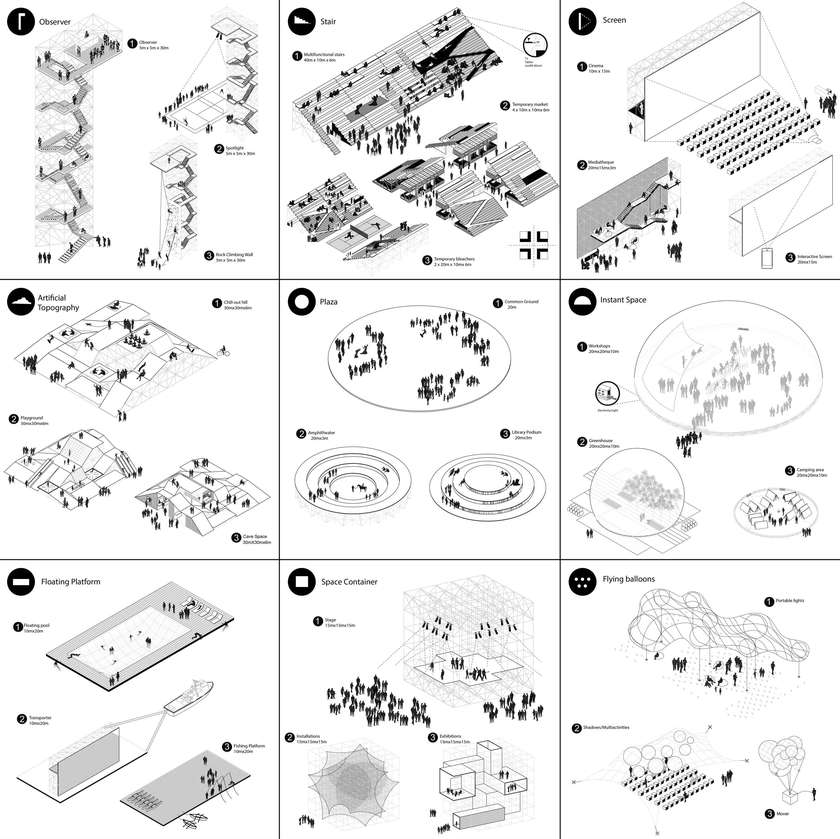
As the medium of the framework of negotiation, activator structures will be swapped/interchanged between the sites enhancing the east-west connection of the city through river. Consisting of nine structures with different roles and capabilities, the activators are pivotal for negotiation of programs, activities and goods in between the sites.
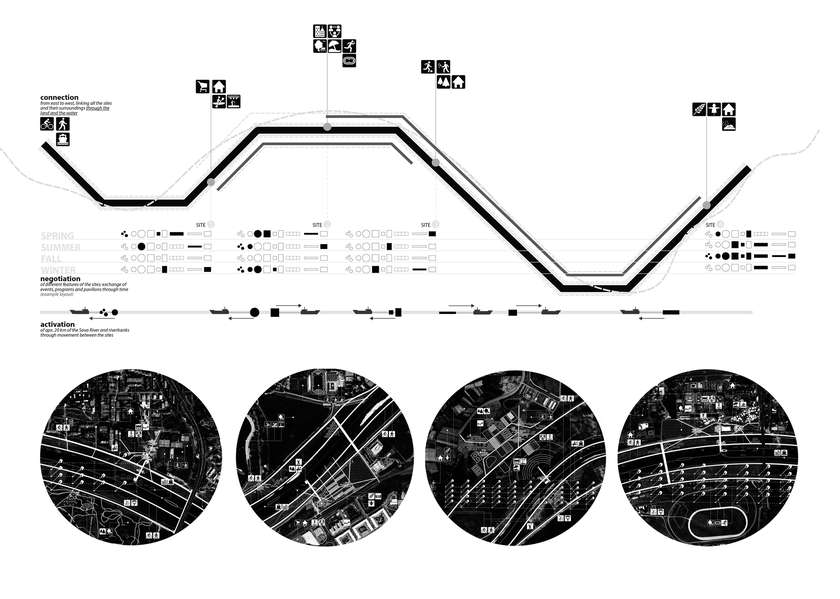
Within the adaptability theme, the work introduces a framework of negotiation in which a constant conversation of the riverbank sites/their surroundings/programs is promoted through exchange on/around the water. The 4 underused sites adjacent to the riverbank have been transformed with subtle landscape interventions such as paths and program surfaces, while as the medium of this exchange, activators are introduced with varying programs to be swapped and interchanged in between the 4 sites.
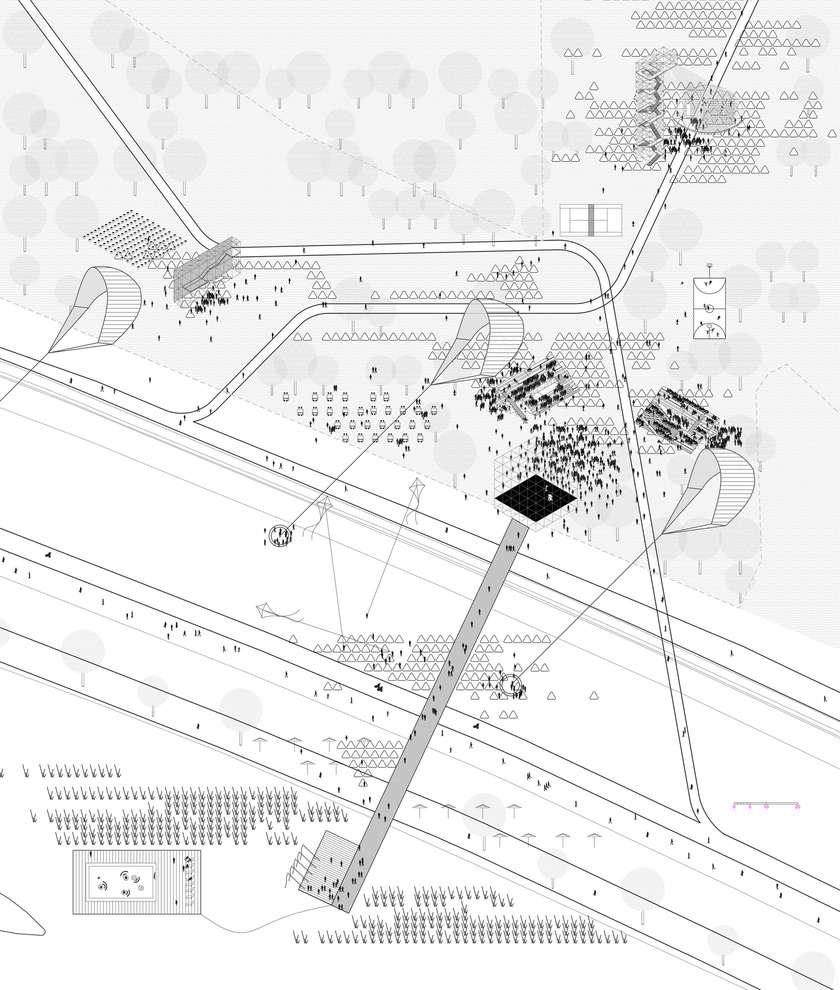
With these proposed interventions the project aimed to answer the question of how intervention on four separate sites could have holistic effect to change movements and relationships of the entire river with the city; examined how to transform 15 km long riverside into enduring public space with temporary programming; and attempted to envision how to build and let new realities emerge within the economic and ecologic constraints.
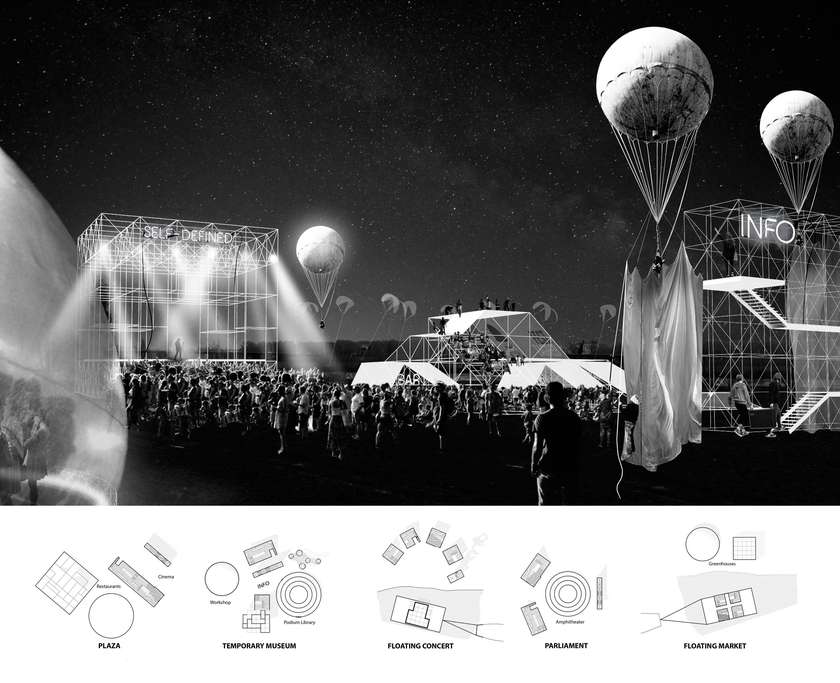
While every single structure is able to host multiple activities through slight changes, combination of varying number of activators generate endless possibilities of events and uses. By visiting each site and being carried through water, the activators foster conversation between the sites, convey programs from one to another, and adapt to the needs of the sites.
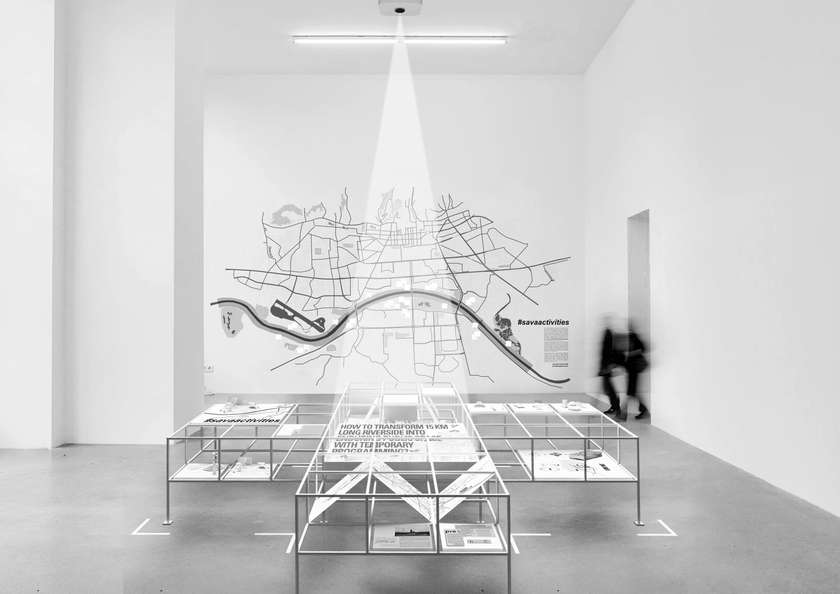
The on-going process revolves around the aimed inclusive public debate to help shape the project and the aim to render is through an interactive exhibition, which intends to deepen the research on this kind of nomadic urbanites since they are crucial for transforming an area with limited means of economics and provide a framework for investigating theories of spatial practices as a means of examining problems within contemporary urban societies.